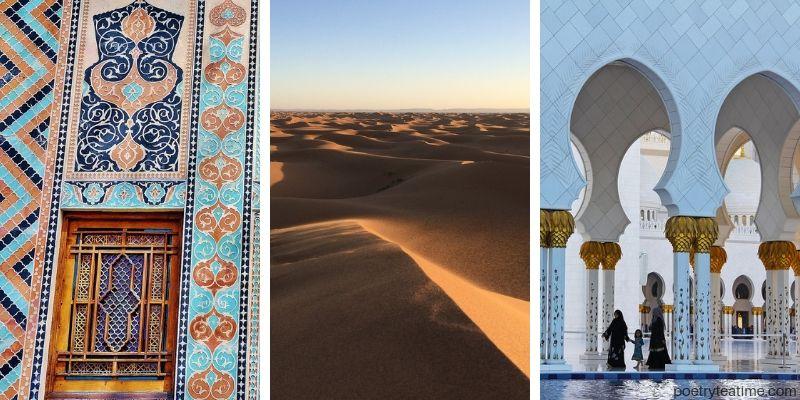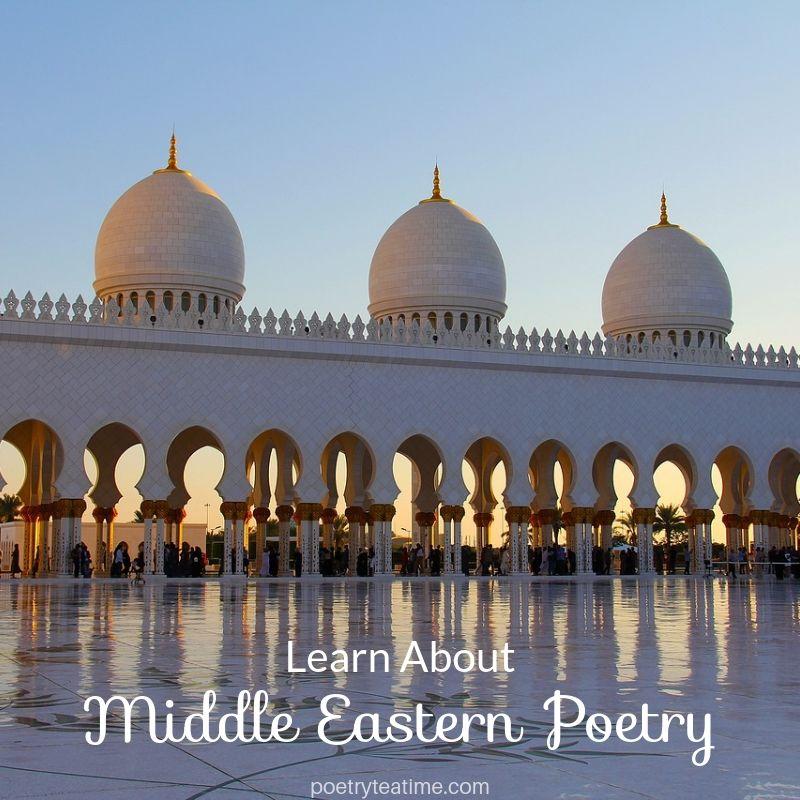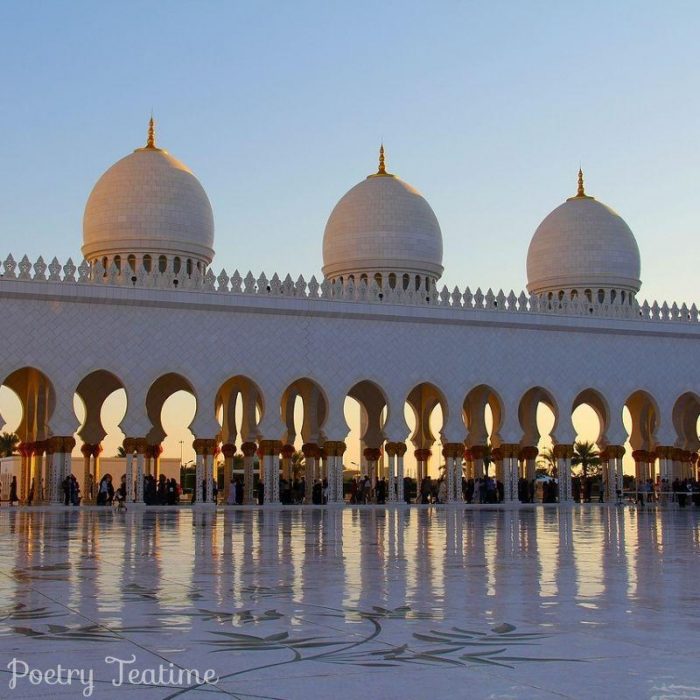At a time when poetry in Europe was in its earliest stages, the Middle East already had a robust tradition of poetry. Today, we’ll be taking a look at the breadth of Middle Eastern poetry, from the ghazal to the qasida, in areas from modern-day Iran through Ancient Egypt. So let’s dive in!
[This post contains Amazon affiliate links. When you click on those links to make purchases,
Poetry Teatime receives compensation at no extra cost to you. Thank you!]
Let's begin with an overview of Middle Eastern literature. Traditionally, it's studied in three overall periods: Pre-Islamic literature, then literature composed during Islamic dynasties, and finally modern literature. The modern era began with Napoleon Bonaparte’s invasion of Egypt in 1798. Before the modern era when novels and short stories became more popular, poetry was the backbone of Middle Eastern literature.
While today we think of the "Middle East" as a geographical area, the language and literature of Middle Eastern cultures, especially Arabic, had a widespread influence across multiple continents. It reached from India in the east to Spain in the west, across modern-day North Africa, Turkey, Iran, and the Arabian Peninsula. It's this broad area that we'll be discussing today.
The earliest poetry in the Middle East was sung by tribal poets of the Arabian peninsula who memorized and recited tens of thousands of poems. These poems were used to declare war between tribes, resolve disputes, and preserve legends and history.
One of the most common types of poems in this era was the “wuquf ‘ala al-atlal” or “stopping by ruins.” In these poems, a wandering poet paused in the middle of ruins to observe and reflect. Eventually, this type of ruin poetry became so common that poets would write satirical poems about “ruin-wandering.”
Today, though, ruins have taken on new significance because of the destructive warfare in the Middle East. Poets in the Middle East today use ruins to comment on the devastating effects of war on homes and families.

A Few Middle Eastern Forms
Let’s take a look at a few forms in greater depth. Remember that many of these styles of poetry developed over centuries, so their rules vary. Also, since many were sung or recited before they were written down, they have patterns of sound as much as sight.
- Qasidah: An ancient poetic form similar to an ode. The qasidah is composed with monorhymes (all the same ending vowel sounds) and a meter based on syllable length rather than stress like in English
- Ghazal: A highly structured verse form made of 5-15 couplets. Each couplet has the same end word or phrase, and the second-to-last word in the couplet rhymes with the previous couplet’s second-to-last word. The theme of a ghazal is often both love and loss.
- Nabati poetry: This is a style of poetry rather than a form. Developed in nomadic Bedouin tribes, these poems are composed in colloquial language with an informal style. The themes range from odes similar to pieces of wisdom, declarations of love, historical accounts, and more. Today, this form is experiencing a revival among poets in the United Arab Emirates. It is even featured in a reality TV competition about poetry!
Books and Poems to Read
We have a wide range of poetry recommendations for you today! Of course, with so much variety in historical and contemporary Middle Eastern poetry, this is only a small hint of the poetry available. So go out and read!
19 Varieties of Gazelle: Poems of the Middle East, collected by Naomi Shihab Nye
A Maze Me: Poems for Girls, by Naomi Shihab Nye
The Space Between Our Footsteps: Poems and Paintings from the Middle East, collected by Naomi Shihab Nye
Other Words for Home, by Jasmine Warga (verse novel)
Ancient Egyptian Literature: An Anthology, translated by John L. Foster (including selections of poetry)
We’re Sailing Down the Nile, by Laurie Krebs
Collection of picture books and stories for kids and teens from across the Middle East, compiled by Colours of Us
Lugalbanda: The Boy Who Got Caught Up in a War: An Epic Tale From Ancient Iraq, by Kathy Henderson (lyrical prose based on ancient poetry)
A selection from The Rubaiyat of Omar Khayyam, translated by Edward Fitzgerald
A selection from “Where Did the Handsome Beloved Go?,” by Rumi



